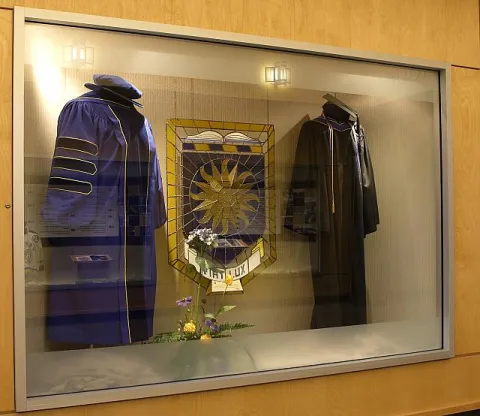History of Liberal Education
A Brief History of Liberal Education

The philosophy of Liberal Education traces back to the Classical Era of the ancient Greeks and Romans, who developed a logical and systematic approach to looking at the world around us, and an education system to produce informed leaders who would engage in the running of their city-states. Thinkers like Thucidides and Plato discussed politics, forms of government, and civic engagement.
These ideas came to life again with the flourishing of the scientific approach in the late 1600s, and on into The Enlightenment or Age of Reason, as thinkers explored politics, economics, government and social systems.
Overview of Liberal Education in the 21st Century
"When we ask about the relationship of a liberal education to citizenship, we are asking a question with a long history in the Western philosophical tradition. We are drawing on Socrates' concept of 'the examined life,' on Aristotle's notions of reflective citizenship, and above all on Greek and Roman Stoic notions of an education that is 'liberal' in that it liberates the mind from bondage of habit and custom, producing people who can function with sensitivity and alertness as citizens of the whole world." --Martha Nussbaum, Cultivating Humanity: A Classical Defense of Reform in Liberal Education, 1998 Taken from: What is Liberal Education?
Formation and Role of the School of Liberal Education at the University of Lethbridge
The University of Lethbridge was founded in 1967 as an undergraduate Liberal Education institution, and in the University's early decades the Liberal Education philosophy permeated our program requirements and pedagogy. We believed in a multi-faceted vision of Liberal Education, that encouraged multi-disciplinary courses and viewpoints, critical thinking skills, debate about larger social and philosophical issues, and turning out well-educated citizens trained as social leaders. But as the academic environment changed over time, with more emphasis on research and a growing graduate program, our broad vision of Liberal Education gradually decreased, and became a focus on breadth through our General Liberal Education (Breadth List) Requirements.

Other facets of Liberal Education were left up to individual disciplines and professors to tackle as they saw fit. In the early 2000s a small Liberal Education teaching program was introduced in Arts and Science, which developed 16 courses designated as LBED. But this too allowed everyone else to assume that between the Lib Ed Program and the breadth requirements, Lib Ed was "taken care of" on our campus and no-one else had to think about it.
In 2012 U of L Provost Dr. Andy Hakin challenged the university community to rethink and revitalize our approach to Liberal Education, through a Liberal Education Revitalization Team (LERT) assigned to re-articulate and promote our original core vision of Liberal Education, what we now call the four-pillar model. This revitalization project led to the formation of the new School of Liberal Education, as an ackowledgement of the centrality of Liberal Education, not just in Arts and Science but to the institution as a whole.

The pillars of our Liberal Education model - breadth and integration of knowledge, critical thinking skills of evidence-based reasoning, and the application of that breadth and skill in civic engagement - capture the essence of our teaching and learning, and indeed of our research; it is a model of all that a university can and should be, for our students and our citizens.
Dr. Shelly Wismath, Dean of School of Liberal Education
